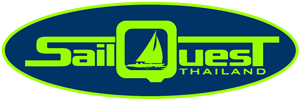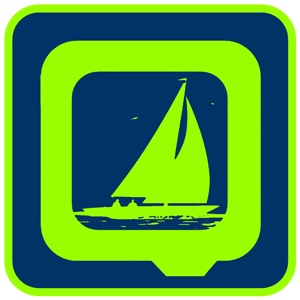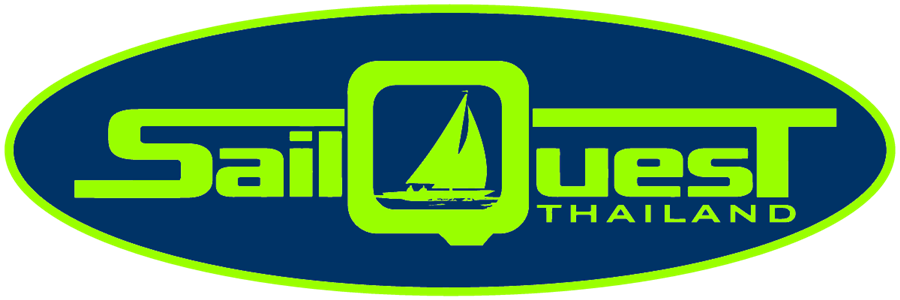Bareboat Chartering Certificates & Sailing Resumes

The vast majority of bareboat yacht charter companies require captains to hold a valid bareboat captain level qualification in order to comply with yacht insurance agreements and to confirm that the captain has at least some previous experience. In the EU, the NauticEd Sailing License & Credentials (SLA) or the MCA endorsed International Certificate of Competency (ICC) is a government enforced requirement for all recreational vessels, sail or power, chartered or privately owned.
With a bit of research, It may be possible to find independent charter operators who are willing to overlook certificate requirements (particularly if the yacht is un-insured) if you can convince them you are capable.
In addition to presenting certificates and/or licenses, an impressive sailing resume makes the approval process much easier. Most charter companies will require sailing resumes and bareboat captain level certificates to be submitted and approved before the charter contract is drawn up.
The NauticEd program includes a digital Sailor’s Logbook and Sailing Resume which are automatically updated as students move their way up thru the NauticEd ranks and levels. Sea miles, the actual route sailed, time & dates are plotted into the online logbook. Photos and other details can be added. To share your logbook/resume, just send a link to your professional looking Sailing Resume which contains a detailed record of your sailing history including courses attended, certificates awarded, maps, miles and comments for all logbook entries. This awesome feature is unique to NauticEd and is a valuable and useful asset for any sailor.
About NauticEd CHARTER MASTER & SLA Requirements
When comparing NauticEd’s CHARTER MASTER level to other bareboat charter level sailing programs - IYT Bareboat Skipper, ASA Cruising 101, RYA Day Skipper – it becomes obvious that the NauticEd path to qualified bareboat captain requires more effort from students and sets higher standards for qualification and evaluation.
For starters, NauticEd students are required to complete online theory courses to prepare for On-the-Water hands-on sailing classes. NauticEd’s CHARTER MASTER bareboat charter level course will take a student around 55 hours to complete the online self-study and the included exams while the other bareboat captain programs have no pre-study requirement and it is often possible for a student to slide thru, only opening the sailing course manual during exams to find exam answers.
In addition to the online course requirement, CHARTER MASTER & SLA certification requires students to have at least 50 days of verified sea time entered in provided online logbooks. 1 day of sea time is 4 hours or more in a given 24 hour period and only 1 day of sea time can be counted during a 24 hour period, so anything from 4-24 hours counts as 1 day. The 50 day NauticEd requirement is higher than other bareboat captain/ICC level certificate requirements, for example, IYT Bareboat Skipper requirement is only 10 days. It is universally agreed by coastguard agencies, charter companies, insurance companies and anyone who knows anything about the realities of taking a boat to sea that when it comes to a sailors abilities and as a measurement of those abilities, there is no substitute for time spent at sea and nautical miles logged. A sailing student who has chalked up 10 days at sea will probably have learned a lot and a student who has reached 50 days will probably have learned a lot more. However, the reality of learning to sail is that you don’t learn it all in 10 days, or in 50 days, or in a year or even in 10 years.
Of course it is possible and expected that skills and knowledge improve with experience, but a boat, the ocean, the weather, the crew and life itself are full of surprises – a sailor learns to expect the un-expected and should be prepared to deal with situations in which he or she is unprepared. Ask any honest sailor (if you can find one!) with tons of experience and they will tell you they don’t know it all. Learning to sail is a lifelong process - there is always more to learn.
So other bareboat captain programs claim 10 days is what it takes to go from Zero to Hero, insurance companies agree to cover captains with this level of training and charter companies are onboard but wish the insurance companies would approve a 5 day program which would result in a wider customer base. If the 10 days of qualifying sea time were all 4 hour days, then you would have a licensed bareboat charter captain, fully approved by IYT/ASA/RYA, the charter company and the yacht’s insurers with only 40 hours of sea time… it is unlikely that anyone who signed off on the approval, put under a little pressure, would agree that after only 40 hours of sea time a person has been properly trained and is prepared to deal with all of the responsibilities of captainship.
None-the-less, organizations who will profit from lower sea time requirements will accept lower standards and how 10 days becomes the accepted standard when captains with decades of experience will admit they are still learning is thru the love of money and a willingness to put profits first and concerns about what it takes to ensure that all who are issued a bareboat captain level certificate are properly and fully trained somewhere down the list.
To make a comparison, in the USA it is in the Coast Guard's best interest to issue professional level captain licenses to sailors with significant experience in hope of minimizing calls for assistance or costly rescue operations. So to qualify to sit the exam for a commercial captains license the candidate must be able to demonstrate a minimum of 720 days of verified sea time. True, a commercial captain has a greater responsibility, with the lives of paying passengers in his hands, but commercial and recreational captains also have many responsibilities in common and more so if operating similar vessels. Yet there is a rather large difference in sea time requirements – 10 days vs. 720 days…
Certainly there are many individuals who can face the challenges without cause for alarm, but then again there are others who would find themselves in too deep too soon when, for example, they are dragging anchor towards a coral reef and the engine won’t start. Or maybe the weather kicks up and calm seas become 2 meter breaking waves, which cause the yacht to roll wildly, sending an even less experienced crew-member overboard. The panicking skipper puts the yacht, already under power, into a tight starboard turn when suddenly the port jib sheet, left unsecured on the deck, gets caught in the prop, stalling the engine…
A more experienced captain may have been able to avoid either of these scenarios or may have been able to recover, solve the problems, and put the events in the “close call” category, but for the bareboat charter captain who was qualified with only 40 hours of sea time, things end badly. The yacht dragging its anchor drags on to the coral jagged coral reef which starts grinding into and then then through the yachts topsides and in a short amount of time the yacht is destroyed, it’s a total loss. In the second scenario, it took the inexperienced captain over 30 minutes to discover why the engine had stalled and with no previous experience with what is a fairly common problem, fouling the prop, another 30 minutes went by before he realized he wasn’t going to be able to clear the prop anytime soon. Finally, an hour after the crew went over the side, the captain put’s in a Mayday call, the closest vessel to respond, a local fishing boat, arrives in the dark to search for the MOB, the Coast Guard arrives an hour later and joins the search… the crew member, not a strong swimmer, not wearing a lifejacket, was never recovered and remains lost at sea.
It is a matter of fact that at many recreational level sailing schools there is an unspoken agreement in place – book and pay for the 10-14 day course and receive bareboat charter level and ICC certificates at the end, in all but extreme cases of obvious ineptitude. It is common practice to allow open book exams and student evaluations are superficial or non-existent. For students who attend a certificate-mill type sailing program just paying for and attending the course is enough to ensure a bareboat captain level certificate.
This is not to say that training programs of this type are entirely ineffective. For the most part, the course syllabus will be followed and a decent education will be provided but minimal requirements, overall lower standards and the practice of promoting students who may not be fully prepared to assume the “loneliness of command” often result in a certified captain who lacks experience and confidence and is not ready to captain a yacht until skills, knowledge, experience & capabilities catch up with the prematurely issued certificate.
In any case, for those who are serious about their sailing education, exposure to a wide range of topics and developing a solid foundation of yachting related knowledge, is a critical step in the “Learn to Sail” process. Time and effort spent going thru the CHARTER MASTER or any other NauticEd online course is will prove to be an excellent investment of a student’s time and effort resources and can be considered the most effective method of covering a huge amount of essential information available anywhere.
NauticEd’s state-of-the-art, multi-media courses are well thought out, easy to navigate and include helpful photos, diagrams and video along with descriptive text. Each lesson is clearly defined, important details are highlighted and text and multimedia are all laid out to keep students fully engaged. Exams at the end of each section are designed to help students focus on and retain the most important parts of the section. All NauticEd courses include lifetime membership so course materials and many useful references`are just a click away, anytime, anywhere. Exams can be retaken without limit in order to improve scores and reinforce the lessons learned.
In addition to a full range of the worlds most advanced online sailing courses, all NauticEd students have lifetime access to a digital Sailor’s Logbook and Sailing Resume and other worthwhile items in their included Sailor’s Toolkit. Access to the NauticEd online library, a giant selection of yachting related books, manuals, cruising guides and more is also included. As far as support is concerned, students who run into any issues while completing online courses can message or live chat with NauticEd at any time to clarify any details of the lessons, ask any questions or check up on your progress thru the NauticEd system.
There’s more: a cutting edge AI-powered sailing-focused data base where you can search and get answers to any and all questions closely or distantly relating to sailors, sailing, yachts, the ocean, chartering… NauticEd’s Chartering Service is included, a guide to charter areas worldwide, featuring events, promotions, special rates and offers, many available to NauticEd students only. Access sailing simulators, useful to visualize air-flow and improve sail trim skills, join NauticEd’s break-through VR sailing course, it’s as close as you can get to being aboard a yacht at sea while pretending to be working in your office…
Without question, NauticEd online courses and diverse range of included tools and resources are far in advance of all other recreational sailing programs. New programs and technologies are continually being developed and added to the ever-growing list of available assets, all with the goal of improving and enhancing the sailing education process and to add value to Nauticed students sailing endeavors.
After course fees have been collected and the Fast-Track course delivered, students who attended other bareboat charter level courses are set adrift with an IYT/ASA/RYA certificate in their pocket that, in many cases, they don’t know what to do with. For them, except for a pricy certificate renewal fee due every 5 years, the sailing education process is over. But for wise NauticEd students, the training and certification process is just the beginning of an ongoing educational process.
NauticEd is much more than just a name on the front of a bareboat captain certificate. Students who choose NauticEd have a real sailing partner who will educate and motivate them. A partner who will keep track of sailing experience and who will remember those unforgettable anchorages you discovered and then forgot about. A partner who will let you know about a flotilla in the Med or an island hopping adventure departing from Jamaica. Lifelong partnership and access to worthwhile online assets is the NauticEd way of showing appreciation to students who refuse to take short-cuts.
Simply put, students who choose NauticEd receive the best online sailing education available and sailing theory coverage that is superior to what is provided thru any Fast-Track type program. When the long list of additional and valuable assets that are included with online courses are considered, NauticEd students have noticeable short and long term advantages over all other options. When a complete and high quality sailing education is the target, when the benefits of an ongoing relationship with the provider and useful online assets can be apprieciated, then the NauticEd program is the obvious choice. No other program even comes close.
Sailors who put in a little extra effort to qualify for CHARTER MASTER and other NauticEd qualifications are setting themselves up for success where ever their sailing adventures may take them. With a solid, well-balanced foundation of skills and knowledge to build on, a reasonable amount of experience in various conditions and situations to fall back on and a sailing resume with internationally recognized captain qualifications that can be presented with honest pride, a NauticEd student is well on the way to achieving his or her sailing goals.

.png)

